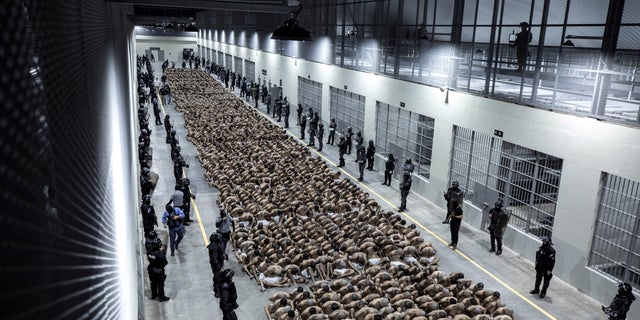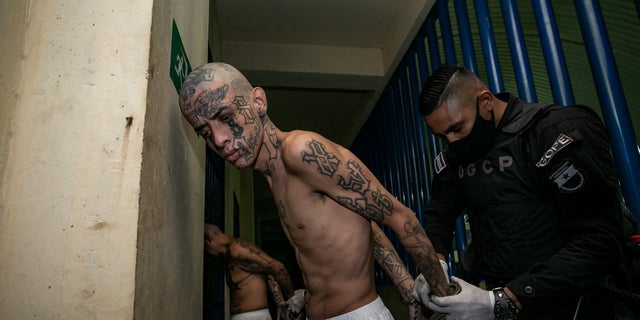‘Never return’: El Salvador locks up gang-bangers in new mega-prison with promise of no release
El Salvador continues to fill up its mega-prison, adding another 2,000 inmates as the government vows they will “never return” to the streets.
“They are never going to return to the communities, the neighborhoods, the barrios, the cities of our beloved El Salvador,” Gustavo Villatoro, minister for justice and peace, said of the transport plans.
The government has swept up roughly 65,000 suspected gang members since approving Salvadorian President Nayib Bukele’s emergency powers in March 2022, which also allowed it to approve and build the mega-prison.
The country’s “Terrorism Confinement Center” has a 40,000–person capacity and has already taken in over 4,000 prisoners as the government continues to crack down on an extensive gang problem. It is already at 10% of its maximum capacity just one month after opening.
HONDURAS SEEKS DIPLOMATIC RELATIONS WITH CHINA, SWITCHING ALLEGIANCE FROM TAIWAN
Another 3,500 of those arrested have gone free, while the remaining roughly 57,000 suspects await trial.
The government has widely publicized the prison, posting videos of prisoner transfers and providing an impressive inside look at the facilities. The prison is one of Latin America’s largest, with 37 guard towers and eight cellblocks that will be “impossible to escape.”
UN WARNS HAITIAN GANGS TAKING OVER COUNTRY, EXTRA POLICE SUPPORT NOT ENOUGH

Bukele has asked for an extension of the emergency powers – known as the State of Exception – that has allowed him to take such sweeping actions over the past year. He pushed through the new measure following three days of violence left 87 people dead, which he blamed on the infamous MS-13 gang.
Congress must still approve the extension of the anti-gang measures, but legislators are expected to do that, as they have done a dozen times before.
MISSING MAN WAS LURED INTO BATHROOM FOR SEX, ENDED UP IN SHALLOW BACKYARD GRAVE: POLICE

Under the special powers, the right to association is suspended, and police don’t have to tell someone being arrested the reason, or inform them of their rights. Someone who has been arrested does not have a right to a lawyer and can be held for 15 days without seeing a judge, rather than the previous 72 hours.
Around 2% of the country’s adult population has ended up behind bars as a result of El Salvador’s operations.
Non-governmental organizations have tallied several thousand human rights violations and at least 80 in-custody deaths of people arrested during the state of exception. Rights activists say young men are frequently arrested just based on their age or appearance or whether they live in a gang-dominated slum.
The Associated Press contributed to this report.
Read the full article Here


